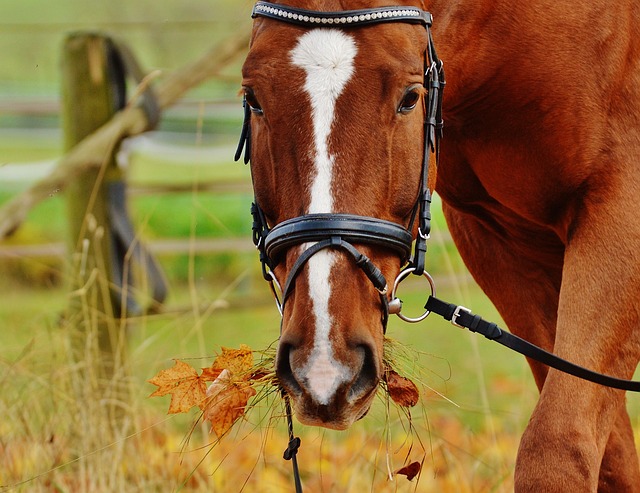When choosing a horse lead rope, it's crucial to consider the balance between comfort for your horse and durability to withstand training demands. Natural fibers like cotton or jute are ideal for horses with sensitive skin, while synthetic materials such as nylon and polyester offer strength and resistance to environmental factors for daily use. The core of a high-quality horse rope, often braided, enhances longevity and stress distribution, which helps maintain its integrity over time. Reinforced termination points made from durable materials ensure secure connections without compromising the rope's integrity under tension. Customization options in length and thickness cater to different disciplines and horse sizes, and protective rings or durable knots at the ends prevent fraying. Whether you opt for a pre-made or tailored horse lead rope, understanding the material benefits and design features is key to selecting a product that offers both comfort and control for effective equine handling. For visibility and safety, consider materials that are resistant to abrasion, fading, and mildew, and offer bright color options. Remember to match your horse's needs with your riding discipline, as sensitive horses may require gentle natural fibers, while training horses might benefit from the durability and slight elasticity of nylon or polyester ropes. Customization also allows for personalized aesthetic choices, ensuring both form and function in your equestrian gear, ultimately strengthening the bond between rider and horse. A well-selected horse lead rope is a testament to thoughtful preparation and commitment to the welfare and performance of your equine companion.
When it comes to ensuring the safety and comfort of your horse during training or leisure activities, selecting the right horse lead rope is paramount. This article delves into the best materials for crafting a durable and reliable horse lead rope, tailored to suit various horses and riding styles. We’ll explore the components that make up a high-quality horse lead rope, the importance of material durability, and how different types of horse lead ropes can cater to your equine companion’s unique needs. Additionally, we’ll discuss the customization options available for creating the perfect horse rope, ensuring both you and your horse have an optimal experience. Whether you’re a seasoned rider or new to the equestrian world, understanding the nuances of horse lead ropes will elevate your horsemanship skills.
- Understanding the Components of a High-Quality Horse Lead Rope
- The Durability Factor: Selecting Materials for Long-Lasting Horse Lead Ropes
- The Best Types of Horse Lead Ropes for Different Horses and Riding Styles
- Customization Options in Horse Lead Ropes: Tailoring the Perfect Rope for Your Equine Companion
Understanding the Components of a High-Quality Horse Lead Rope
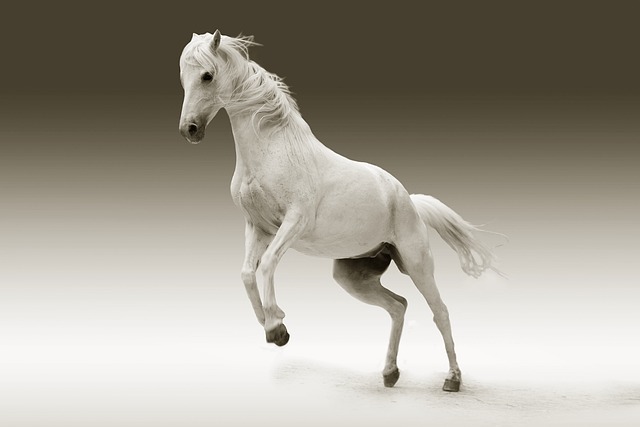
When selecting a high-quality horse lead rope, it’s crucial to consider the materials and construction techniques that contribute to its durability and effectiveness. A top-tier horse lead rope is typically crafted from either natural fibers like cotton or synthetic materials such as nylon or polyester. These materials offer different advantages: while natural fibers provide a soft, comfortable feel for the horse’s mouth and halter, synthetics are known for their superior strength and resistance to water, mold, and mildew. The core of the rope often consists of a braided strand, which not only adds to the rope’s longevity but also ensures even stress distribution when in use. This design helps prevent wear and tear over time, ensuring the rope can handle the rigorous demands of daily training.
The termination points, where the lead rope connects to the halter or bit, are critical areas that often feature reinforced fittings. These fittings, made from durable metal alloys or high-strength plastics, are designed to withstand frequent use and prevent the rope from snapping under tension. Additionally, the length and thickness of the rope are tailored to suit various disciplines and horse sizes, making a custom horse rope an excellent choice for both comfort and control. The ends are typically finished with durable knots or covered with protective rings to safeguard against fraying and to maintain a secure connection during training sessions. Whether you opt for a ready-made horse lead rope or choose to commission a custom horse rope, understanding these components will ensure you select a product that meets the needs of both horse and handler.
The Durability Factor: Selecting Materials for Long-Lasting Horse Lead Ropes
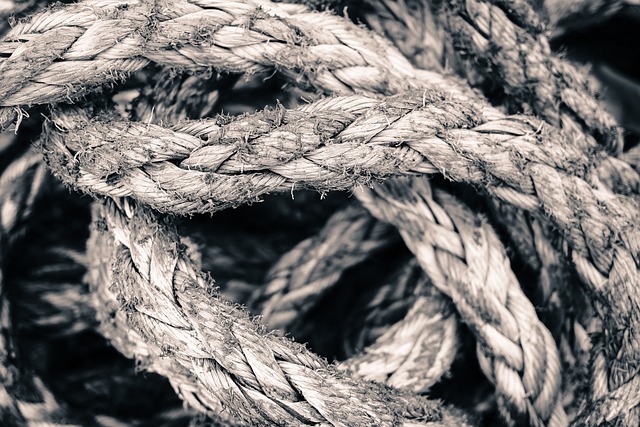
When it comes to ensuring safety and effectiveness during equestrian activities, the choice of material for a horse lead rope is paramount. A high-quality horse lead rope made from durable materials not only enhances control over the horse but also withstands the wear and tear that comes with regular use. Among the most preferred materials for custom horse ropes are natural fibers like cotton and jute, which offer a good balance between strength and flexibility. These materials can absorb sweat and are kind to the horse’s skin and coat. However, for a horse lead rope intended for intensive use or particularly strong horses, synthetic fibers such as nylon or polyester are often recommended. These synthetics provide increased resistance to abrasion, fading, and mildew, ensuring that the horse rope maintains its integrity over time. Additionally, they are available in a variety of bright colors for visibility, which is a significant safety feature, especially when riding in areas with poor lighting or on busy roads. The durability of these materials means that a well-crafted custom horse rope can endure the demands of daily training sessions without compromising on performance or comfort. When selecting a material for your horse lead rope, consider factors such as the horse’s temperament, environmental conditions, and the specific demands of your training routine to ensure that you choose a material that offers both longevity and functionality.
The Best Types of Horse Lead Ropes for Different Horses and Riding Styles
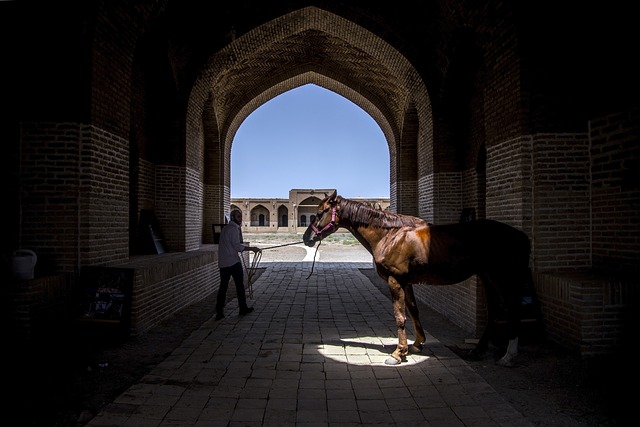
When selecting the best horse lead rope for your equine companion, it’s crucial to consider both the horse’s individual needs and the specific demands of your riding style. For horses with sensitive skin or those prone to allergies, a lead rope made from natural fibers like cotton or hemp is often preferred due to their softness and hypoallergenic properties. These materials also offer a level of give, which can be gentler on the horse’s skin and coat. On the other hand, horses that require more control or are in training for specific disciplines may benefit from a nylon or polyester rope, which are both durable and have a certain amount of stretch to absorb shock and prevent injury.
Custom horse ropes tailored to your preference can enhance both safety and comfort for both you and your horse. For instance, if you engage in trail riding, a lightweight and highly visible lead rope with reflective threads can ensure your horse’s safety during early morning or evening rides. In the realm of dressage or show jumping, a leather horse rope complemented by a quick-release snap can offer a classic aesthetic while allowing for swift disconnection should it be necessary. Whether you’re looking for a standard length or a specialized design, such as one with a built-in bear claw grip for a firmer hold, investing in a high-quality horse rope that suits your specific equestrian activities will greatly contribute to a positive and safe experience for both you and your horse.
Customization Options in Horse Lead Ropes: Tailoring the Perfect Rope for Your Equine Companion
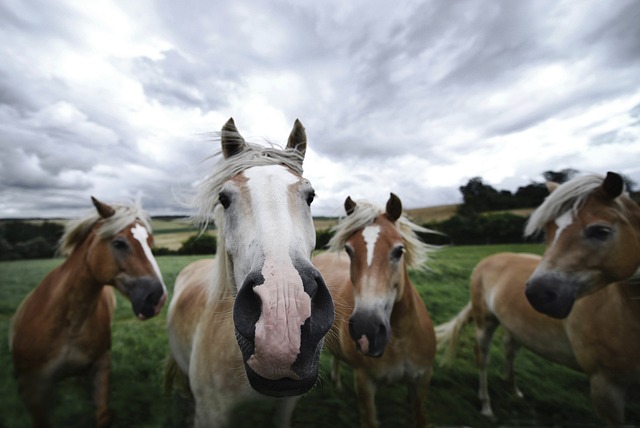
When seeking a reliable and effective horse lead rope, customization can be a key factor in ensuring both the safety and comfort of your equine companion. The best horse lead ropes are those that cater to the specific needs of your horse, taking into account their size, temperament, and the activities you engage in together. A custom horse rope allows for tailored features such as length, material, texture, and strength, which can significantly influence the level of control you have during training or riding. High-quality materials like polyester are popular choices due to their durability and resistance to rot and mold, making them ideal for various environments. Additionally, the addition of rubber or neoprene grip ensures a secure hold without causing discomfort to your horse.
Customization extends beyond mere functionality; it also encompasses aesthetic preferences. A wide array of colors and patterns can be selected to match your horse’s personality or your personal style. Whether you prefer a sleek, minimalist design or something more vibrant and eye-catching, the best suppliers offer a diverse range of options to create a lead rope that is as unique as your horse itself. By considering factors such as the horse’s behavior, the intended use, and your individual preferences, a custom horse rope can be an invaluable tool for effective communication and control during your equestrian activities. With the right combination of materials and design elements, you can achieve the perfect lead rope that not only enhances your training sessions but also complements the bond between you and your equine partner.
When selecting a horse lead rope, the choice of material is paramount, influencing not only the longevity and performance but also the safety and comfort of both the horse and the handler. This article has delved into the critical components that constitute a high-quality horse lead rope, emphasizing the durability factor and exploring how different materials cater to the needs of various horses and riding styles. With the wealth of information on custom horse ropes available, horse owners can now tailor the perfect rope to suit their equine companion’s specific requirements. Whether prioritizing strength, flexibility, or aesthetics, the ideal horse lead rope exists to enhance the training and care experience. In conclusion, the right horse lead rope is a testament to an owner’s commitment to their horse’s well-being and a reflection of the importance of quality in all aspects of equestrian endeavors.
